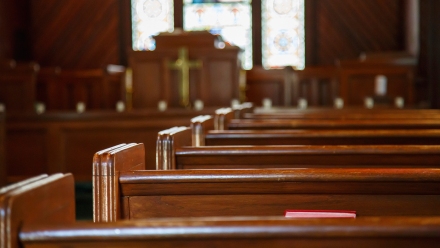 (This is the second in a series of posts about parenting, children, birth control and abortion. To read part one click here.)
(This is the second in a series of posts about parenting, children, birth control and abortion. To read part one click here.)
Let me explain what an accident is. If I am driving down the road, and hit a patch of oil, and careen out of control into another car, that is an accident. I certainly hope that no one gets hurt. I didn’t mean for it to happen. I didn’t drive recklessly or over the speed limit. It was an accident.
But if I intentionally drive over that middle line and ram my car into oncoming traffic? That is not an accident. Now, I may have made sure that I and everyone in my car was wearing a seat belt. But if someone is hurt I don’t get to claim “I didn’t mean for you to get bumps and bruises.” No. If you drive head on into oncoming traffic that is not an accident.
If you have sex, a pregnancy is not an accident. That child is not an accident. And we need to stop calling them such.
The way we talk about children often borders on shameful. They are accidents. They are expensive. They are burdens.
And sometime our more subtle ways of talking about kids is even worse. We post on Facebook about how tired we are because of these little ones. We describe with utter joy any moment when they are not with us.
In fact, from the way many people talk about their children, I want to ask them why. Why do you have them? If they are this much burden, this much of a drag, if they keep you from doing almost everything you want to do, why have them? And certainly, why have more?
Now, maybe these parents don’t meant it. They are simply venting frustrations. Actually, they are very glad to have those kiddos in their life. That could be the case. I’m sure that for some it is. But if they really want and love and find joy in those kids, then, why all the complaining?
I think we complain and gripe because that is what the culture is teaching us. A parent should be tired and whiney. They should be jealous of all those with less responsibility. Having children is this giant burden that robs you of your identity, friends and money. And that is how we describe it. And after describing it that way for long enough, we come to believe that’s the truth.
Admittedly, parenting is hard. It is difficult. It is tiring. Parenting is often a struggle. Sometimes exhausting. Occasionally heartbreaking. And to top it off it is probably the most important job in the world. So there is also lots of pressure. Which is why it matters so much how we talk about our children or children in general. Parenting is hard enough without a constant reminder that we didn’t plan for this guy, or really want another, or wish they would just hurry up and grow up.
You see I am not just concerned about the way we talk about children affects them (although I can’t imagine what constantly overhearing that you are an accident does for your self-esteem). I am interested in how our language affects us.
Constant negativity in any arena will push us to see the difficulties much more than the joys.
A society that consistently complains about the burden and work of children can’t help but teach us that our goal should be to limit or avoid these hardships. Through birth control or even through abortion.
Here is my crazy idea: What if Christians, and especially Christian parents, determined to only say positive things about children? Imagine if every word that came out of our mouths regarding little ones was seasoned with joy, thoughtfulness, gratitude and appreciation. Wouldn’t it be great if the world around us said, “Boy those church people sure do like children.”
Now, some may argue that is unrealistic. That everything isn’t always great. True. It just seems to me that our culture has swung so far the other way, that we are so bombarded with the negative about parenting and children, that us speaking about joys and gratitude might start pulling us back more toward the middle.
Jesus said, “Let the little children come to me, and do not hinder them.” Is that how we feel? Is that what we say? Do we want them with us? Are they a burden or a blessing?



